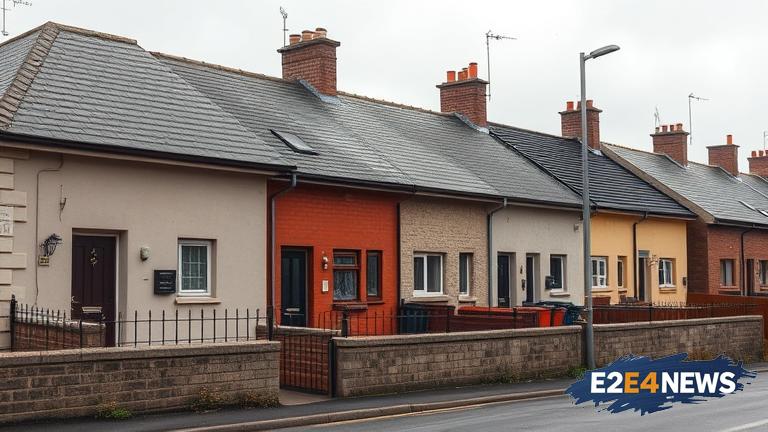A recent report has highlighted the uneven distribution of asylum seeker housing in Northern Ireland, with a significant majority being accommodated in a limited number of areas. This has sparked concerns among local residents, community leaders, and advocacy groups about the potential impact on social cohesion, public services, and the overall integration of asylum seekers into Northern Irish society. The report reveals that a substantial proportion of asylum seekers are being housed in areas with already strained community resources, leading to fears about the ability of local authorities to provide adequate support and services. Furthermore, the concentration of asylum seekers in specific areas may exacerbate existing social and economic challenges, such as poverty, unemployment, and access to healthcare and education. The situation has also raised questions about the effectiveness of the current asylum seeker housing policy and the need for a more equitable and sustainable approach. Many argue that a more dispersed distribution of asylum seeker housing would help to promote better integration, reduce tensions, and ensure that the needs of both asylum seekers and local communities are met. However, others have expressed concerns about the potential for dispersal to lead to isolation and disconnection from essential services and support networks. The issue has also sparked a wider debate about the role of government, local authorities, and community organizations in providing support and resources for asylum seekers and promoting social inclusion. In response to the report, some have called for increased funding and investment in community resources, as well as initiatives to promote cultural awareness, understanding, and exchange between asylum seekers and local residents. Others have emphasized the need for a more comprehensive and coordinated approach to asylum seeker housing, involving multiple stakeholders and agencies. The situation in Northern Ireland is not unique, as many countries across Europe and beyond are grappling with similar challenges related to asylum seeker housing and integration. However, the specific context and circumstances of Northern Ireland, including its complex history and social dynamics, require a tailored and nuanced approach. The report’s findings have significant implications for policymakers, practitioners, and community leaders, highlighting the need for a more informed, responsive, and inclusive approach to asylum seeker housing and integration. Ultimately, addressing the disparities in asylum seeker housing and promoting more equitable and sustainable solutions will require a sustained effort and commitment from all stakeholders involved. The issue is complex and multifaceted, involving not only housing and accommodation but also access to education, employment, healthcare, and social services. As such, it will require a comprehensive and coordinated response that takes into account the diverse needs and perspectives of asylum seekers, local communities, and other stakeholders. By working together and adopting a more inclusive and sustainable approach, it is possible to create a more welcoming and supportive environment for asylum seekers in Northern Ireland, while also promoting social cohesion and community well-being. The report’s findings serve as a timely reminder of the need for ongoing dialogue, collaboration, and innovation in addressing the complex challenges related to asylum seeker housing and integration. As the situation continues to evolve, it is essential that policymakers, practitioners, and community leaders remain committed to finding solutions that prioritize the needs and dignity of asylum seekers, while also promoting the well-being and prosperity of local communities. The search for solutions must be guided by a deep understanding of the complex social, economic, and cultural dynamics at play, as well as a commitment to upholding the rights and dignity of all individuals, regardless of their background or circumstances. By adopting a more informed, responsive, and inclusive approach, it is possible to create a brighter future for asylum seekers and local communities in Northern Ireland, one that is characterized by greater social cohesion, mutual understanding, and respect.
